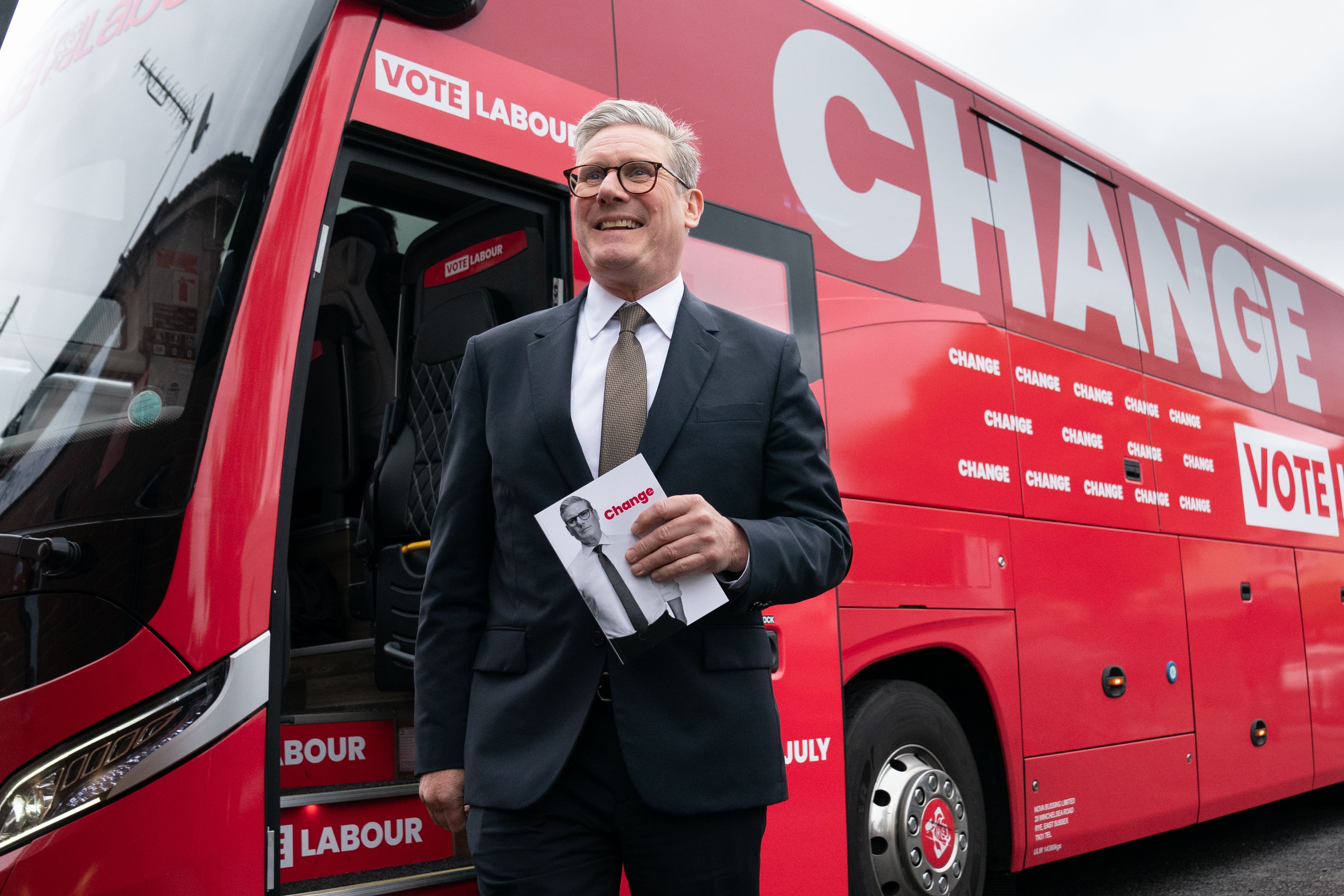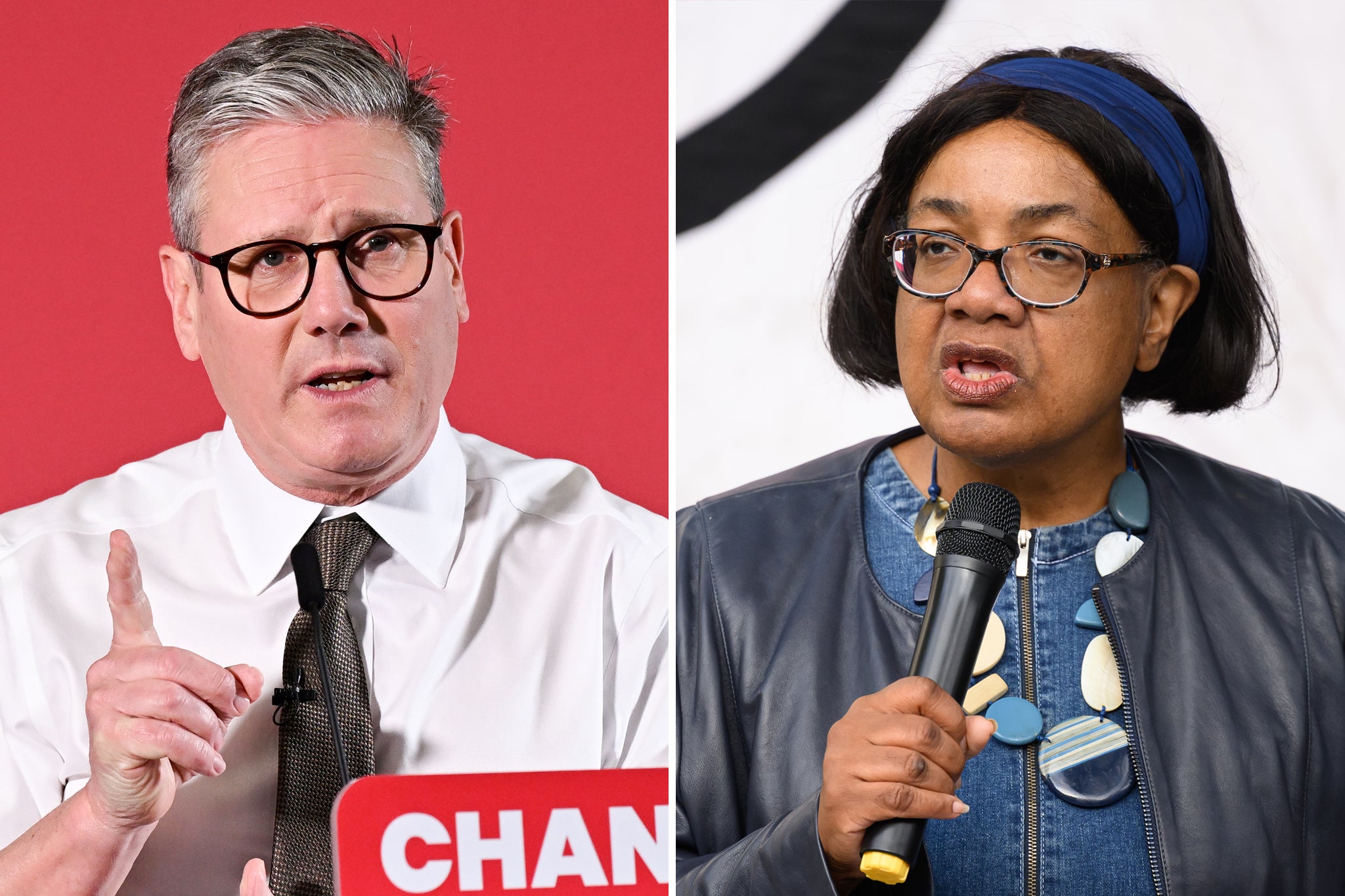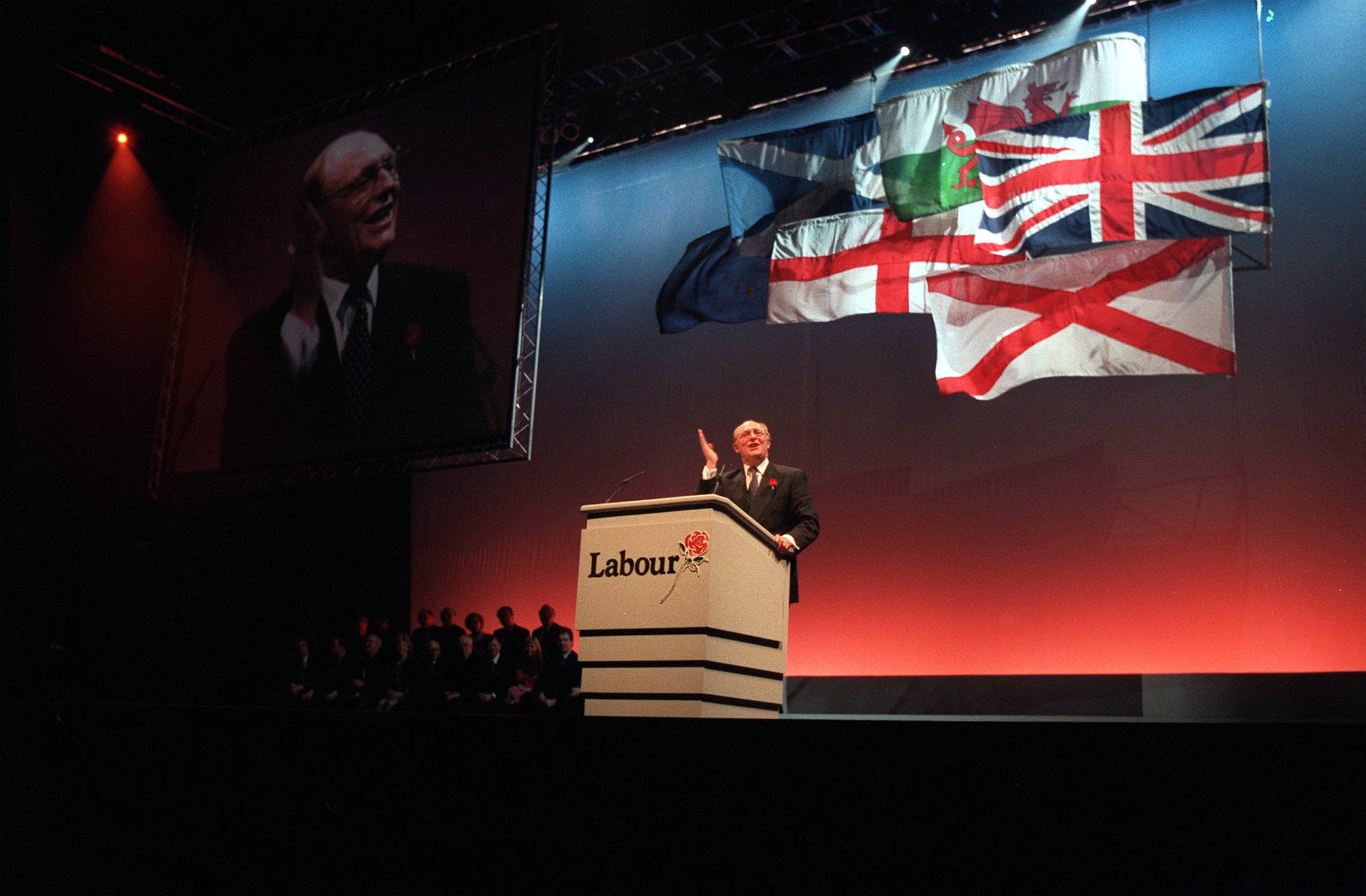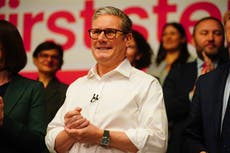Keir Starmer is carrying a precious ‘victory’ vase, but no-one should relax until 9.59pm on election day
As the polls suggest Labour is on track for victory on Thursday, former home and foreign secretary Jack Straw explains how even when everyone tells you you’ll win you can’t ever believe it and why history tells us everything you need to know about the dangers of hubris


You never ever felt like that,” was my wife’s response when I told her that I had been asked to write about how it feels to fight an election when you think you are going to win. The 1997 general election was the sixth I’d fought as a candidate. Yes, Labour has beaten the Tories occasionally. In 1964, only just. For months we’d been ahead in the polls; but they narrowed and narrowed. On the day we had just a one-seat margin over all other parties.
In February 1974 (when I was Labour candidate for that socialist redoubt of Tonbridge and Malling) Tory PM Ted Heath had had a seven-point lead when he called the election. It ended in a dead heat. The Tories polled more votes than us, but were four seats down. Harold Wilson formed a minority administration, to scrape a majority in October. That time we had 42 more seats than the Tories, but only two seats ahead of all other parties. In the five years to 1979 we gradually lost our majority, stumbling to defeat against Margaret Thatcher. That was when I was first elected as MP for Blackburn.

There followed endless false dawns of local elections, some truly horrible internal battles, and the 1992 general election. Mythology has it that it was the 1992 Sheffield rally that cost us and Neil Kinnock the election. That rally was weird. When I was introduced as the “next education secretary” I recall thinking that we’d all be punished for this hubris. The truth was that support dripped away from us throughout the election – aided by a vitriolic media campaign against us. The last opinion poll gave Labour a 3 per cent lead. The result the next day was a Tory lead of 7.5 per cent and a majority Conservative government for the fourth time in a row.
I was so depressed by that, I seriously thought about packing it all in, and going back to a quiet life at the bar [before entering politics, Mr Straw was a barrister]. I had the gut feeling that, for reasons I didn’t fully comprehend, Labour was unlikely ever to win. The gods were against us. We’d all done something in our previous lives. All madly irrational, but what’s reason got to do with feelings?
By March 1997, when John Major called the election, we’d been ahead in the polls every month bar one since Black Wednesday (16 September 1992) when a major currency crisis hit sterling. We’d been winning local and by-elections. But none of us could quite believe that this time the gods might be with us. From Tony Blair downwards, we were petrified that something would go wrong. Roy Jenkins described Tony as someone “carrying an immensely valuable vase across a wide room with a very slippery floor”. We faced the constant hazard of the press. In the absence of social media, everyone read the newspapers which were mainly Tory, and extraordinarily powerful.
The actual election campaign in 1997 was, for once, remarkably free of major balls-ups for Labour (and, amazingly, The Sun supported us). The only blip I recall was an infelicitous answer Tony gave on Question Time when Tony heard himself saying “yes” to a question about whether he’d support a private member’s bill to ban hunting. (“Sorry, I misspoke,” he said to me later.) While hunting with hounds has become a non-issue today, in 1997, my fear (and Tony’s) was that it could unnecessarily alienate rural voters.
As usual, I was the last person in the Blackburn Labour Party still knocking on doors with my ever-loyal daughter. We didn’t stop until 15 minutes before the polls closed.
The 1997 election, to me, was the exception which proved the rule, that Labour would always stumble during election campaigns
I was wrung out when we got home. The whole of my family was in our house – our children, my mum, my four siblings, and some close friends. The exit polls came on the television: Labour was to win by a landslide. I’m “Johnny” to my close family. “Well done, Johnny,” said my brother Ed, “you’re going to be home secretary.” I turned on him in a fit of very bad behaviour and told him not to tempt the gods – had he forgotten that the exit polls after the 1992 election had wrongly predicted a hung parliament? My wife bundled me into a bedroom, told me to calm down, and stuffed some food in my mouth.
The 1997 election, to me, was the exception which proved the rule, that Labour would always stumble during election campaigns. In 2001 Labour was again riding high in the polls. But on the day of the manifesto launch I thought that I’d thrown away Labour’s chances. That afternoon I was in Blackpool for the Police Federation conference. Normally the home secretary was accompanied on the platform by very senior officers weighed down with gold braid. On this occasion, in the midst of an election campaign, they had to stay away to avoid suggestions of partiality. Although my speech was slavishly pro-police, it made no difference. Halfway through, the slow handclaps started; then the catcalls. The chair did nothing. I ploughed on and left quickly.
On the train back, convinced that my mauling would eclipse all the coverage of the manifesto launch, I told Ed Owen, my special adviser, that the only thing to do was to order a large bottle of red wine. An hour later, Ed took a call and started giggling. “Tony’s upstaged you in the disaster stakes – he got monstered on a visit to a Birmingham hospital.”
A little later, another bottle, another call, and Ed was laughing hysterically. “It’s all OK, Jack. John Prescott’s lamped a voter. It’s the top story everywhere. Tony’s second. You’ll be lucky to make page 17.” We won again, almost by the same margin as in 1997.

In 2005, the Iraq election, plenty went wrong. The low point for me was eight days before polling. On a train back to Blackburn from campaigning in Reading, Tony called me to say that the full text of attorney general Peter Goldsmith’s legal advice on the war had leaked – and he wanted me to do the media. Hasty arrangements were made with a hotel for me to be interviewed by five separate TV crews, from 10pm to midnight. I did OK – I knew Peter’s advice and all the UN resolutions pretty nearly off-by-heart. But I thought that after that I was probably a goner, and the party with me.
We – and I – were lucky on that occasion. A significant portion of the anti-Labour vote went to the Lib Dems. We won with a comfortable majority.
We were not so lucky in the 2010 election, when Gordon Brown’s comments about Mrs Duffy were captured on an open mic which had been left on his lapel. This became emblematic of our missteps in that campaign. It took three further defeats to bring the party to its senses, and finally elect a leader who knew how to connect with the British people.
Keir isn’t Tony – but Tony isn’t Keir, and in my judgement the party, and the country, currently needs Keir’s steadiness and steeliness. Will he manage to carry his “immensely valuable vase” – victory – “across a wide room with a very slippery floor”? I think so, but no Labour activist should stop working until 9.59pm on election day.
Join our commenting forum
Join thought-provoking conversations, follow other Independent readers and see their replies
Comments


Bookmark popover
Removed from bookmarks